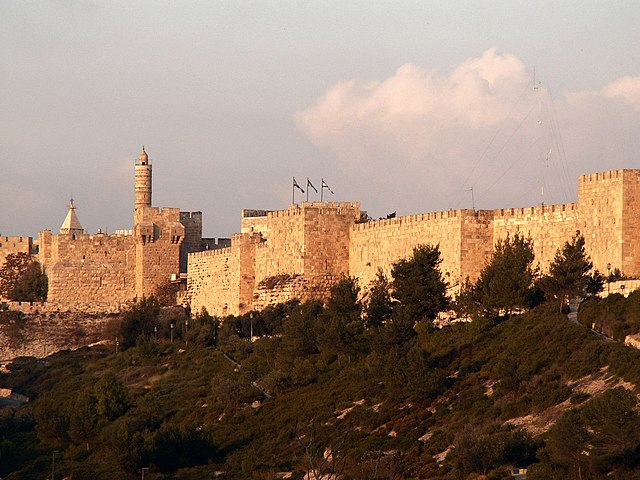Pastor Tom Johnson, September 28,
2014
This morning we
are talking about finding our joy in stewardship; that is discovering
and cultivating a passion for using our gifts of time, talent, and treasure for
the Kingdom of God. The Scripture
texts for today for St. Michael and All Angels gives us fertile ground. Daniel
discovers his call to put fear behind him—to not let fear and the unknown rob
him of finding his joy. Daniel is called
to be humble, to rely on the Word of God, and to know that there are many
spiritual realities that are hidden and invisible to us at work on our behalf.
The archangel Michael and other angels serve God perfectly without much
recognition. They serve us as well without much awareness on our part. The Book of
Revelation also is meant to encourage us that a spiritual battle is being won
on our behalf even though we cannot witness it. And that the angels have
conquered by the blood of the Lamb. Daniel says that we will one day shine as
brightly as the midday sun reflecting the perfect glory of Christ. “Rejoice then, you heavens and those who dwell in them” says our
Scripture from Revelation. And Jesus, in our Gospel, “Rejoice that your names
are written in heaven!”
At first it may
seem as simple as God telling us to simply cheer up. Or that finding our joy is
as easy as just making up our mind to be happy and care-free. The cynic in me
gives me pause. Is it worth it to try to convey a message about joy? There are
so many unanswered questions that I have. I suspect you also have your own.
There are so many challenges in this world. There is so much suffering. To ask of myself
to find joy—to ask for you to embark on a journey to discover joy—sounds
awfully trite and shallow. Thankfully, it’s not.
Consider the
context of Daniel’s
vision. He is the victim of human trafficking. His family and friends were
enslaved, brutalized, and killed by Babylonian soldiers. He was torn away from
his homeland and taken by his Babylonian captors into a strange and foreign land.
Daniel needed meaningful and profound joy. Consider the
context of John’s
Revelation. He is in exile on the Island of Patmos. Christians all across Rome
are sent away from their homeland, arrested, imprisoned, and killed by the emperor. Both John and God’s people needed a joy
that could thrive even in the face of the palpable evil of this world. Jesus actually
safeguards his disciples against triumphalism—that is, he does not want them to
derive their happiness from a few successful confrontations with the spiritual
forces of evil. Good does not always triumph over evil in this world. There
will be days when our demons will get the best of us. If Daniel can
find joy in his Babylonian captivity, John in his exile, and the disciples in
the face of persecution; you and I can also find joy that is real. Our
Scriptures challenge us this morning to rejoice—to find and express our joy. Have you
noticed that in each of our texts, joy is something that proceeds from heaven
to earth—from what is invisible—from what is hidden from our human eyes—from
something that time and space cannot rob us of? Joy is a gift of God.

And just what is
joy anyway? Have you noticed yet that I have not defined what joy
is? I really don’t want to. And I don’t believe I even could if I tried.
Dictionaries, encyclopedias, and “Googling it” seem to fall short. Talking about
joy or defining it falls short of what it truly is. It is like the difference
between seeing musical notes on a page and hearing a master violinist make her
bow dance on the string. It is like the
difference between reading the stats of a football game in the newspaper and
seeing the soaring spiral of a 30 yard pass live
that seems to find its own place in the cradling arms of a runner. Joy is caught
not taught. Joy is taking the risk to trust God. Joy means the courage to not
be paralyzed by the fear of failure. Joy requires openness to new ideas and
ways of perceiving things. It takes living by faith and not by sight. Joy is curiosity
about the world around us that we experience every day. Joy is curiosity about
those things that we cannot see, hear, taste, smell or touch. “Do not rejoice
that demons obey your commands; rejoice that your names are written in heaven!”
Find your joy—derive your joy from timeless, spaceless eternity.
It would be good to remind ourselves that heaven is not how we may often think of it—as some merely future reality—as a place that is far off in the corner of our galaxy just behind the Milky Way. Heaven is God’s present reality—the eternal now. Jesus is the great I AM—the One who is, who was, and who is to come. And heaven is not a piece of real estate somewhere in our universe. It is God’s Kingdom presence everywhere. That is why God’s Word can say such bold and mind-boggling things like God has loved us since before Creation. Or that Jesus is the Lamb of God who was slain before the foundation of the world.
Our names are written in heaven! Wow! God’s unconditional love for us is so secure that he has inscribed our names into the stone walls and jewel encrusted pillars of the New Jerusalem! That is the reality of our joy in the Kingdom—and in our King, Jesus. God’s love is inscribed into the hands, feet, and side of his Son. He used Roman nails and a sword for his stylus. It is there we find triumph over evil. It is there we find our joy.



